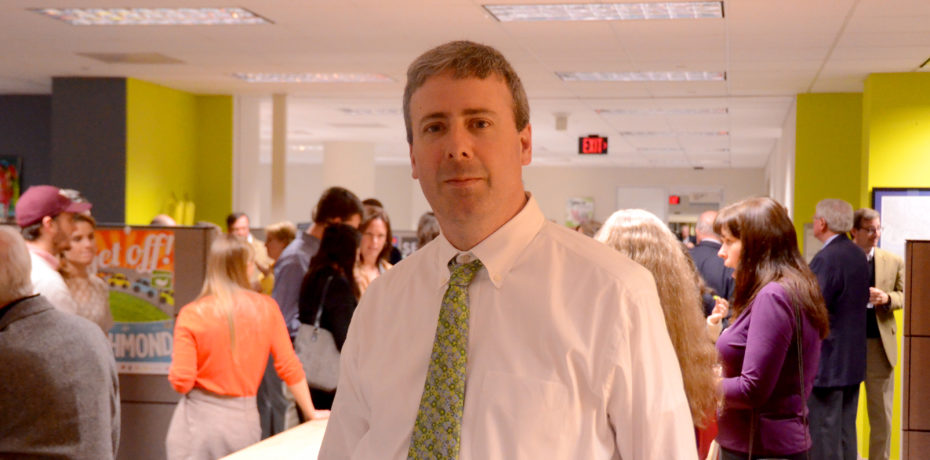It’s hard to turn around in Richmond without bumping into a collaborative workspace or three. There’s Gangplank Henrico for the technology-minded, or 804RVA for individual entrepreneurs tired of staring at their bedroom walls. Hanover offers the Dominion Resources GreenTech Incubator, while the city offers Advantech with its below-market office space rental. A trio of local business standouts launched New Richmond Ventures, which advises startups and offers opportunities for space. And there’s always the basement of the Tuckahoe Library, or any number of coffee shops.

It’s a good problem to have in a city that is trying to reimagine business-as-usual.
Collaborative workspace–shared space, co-working spaces, incubators, accelerators, shopping malls, flea markets–are nothing new, but there’s been an interesting groundswell of co-working activity in RVA of late.
At a recent gathering-at the grandfather of collaborative business spaces, the Corrugated Box Company-about 40 people actively involved in the creation of shared business communities came together to explore what it might take for the dozen-plus collaborative/entrepreneurial spaces in town to thrive.
It’s a question the Richmond Times-Dispatch and my company, Floricane, have been asking in our own small way since last November. That’s when publisher Tom Silvestri and I got together to discuss turning a corner of the RTD’s downtown building into an entrepreneurial hub. It didn’t take long for this simple, and exciting, idea to slow down–it’s typical when organizations juggle multiple priorities. To his credit, Silvestri remained dogged in his support of the idea and slowly nudged the decision through Media General.
By late May, we were finally ready. The Times-Dispatch would take 4,500 square feet of space on the first floor of its building and invite six to eight small businesses to come together and share workspace. Floricane was asked to come aboard as an anchor tenant and strategic partner. The day we were set to sign an agreement, a businessman from Nebraska bought the Times-Dispatch (and 61 other Media General publications).
Suddenly, the creative side project took back burner to a host of major transition issues facing the Times-Dispatch team.
Six weeks later, the idea regained legs. (I said Silvestri was dogged, didn’t I?) On July 2, we signed an agreement and started measuring the drapes in anticipation of an August move.
Floricane’s six-person team landed in the 1E space in August and quickly drove the RTD team nuts with our demands. Not so much. Outside of vividly painted walls, loud music, and a steady stream of clients/visitors, I’d say we’ve been the perfect tenants. Well, good ones, at any rate.
In September, the marketing/design firm Zeigler | Dacus joined the 1E community. We installed a communal worktable and presentation wall, finished painting, and invited a few hundred of our best friends to visit the space in celebration of Floricane’s fourth anniversary. And we went about the business of being in business.
Now that the kinks have been worked out, we’re moving forward with the Times-Dispatch to identify tenants for the rest of the space and add more furniture and break-out space for small and large group meetings.
As the Times-Dispatch and its new parent company, World Media Group (WMG), continue to explore their future at 300 East Franklin Street, the 1E space is serving as an interesting model.
The RTD is actively considering new ways to build appropriate relationships between its new 1E tenants and its business team. It sees opportunities for a community newspaper to play a more active role in the future of the region.
The 1E initiative has added dimension to one of Silvestri’s key concepts, the Public Square dialogues he hosts monthly with readers to lower the wall between the paper and the community. And it has started discussions about ways to energize and transform the remaining 31,000 square feet of space on the first floor of the RTD/WMG headquarters.
More importantly, the 1E initiative has brought new life and energy to a building that needs to be at the heart of a community conversation about the future of business in Richmond.
Multiply the conversation we’re having at 300 East Franklin Street by 20. That’s how you change business-as-usual.

